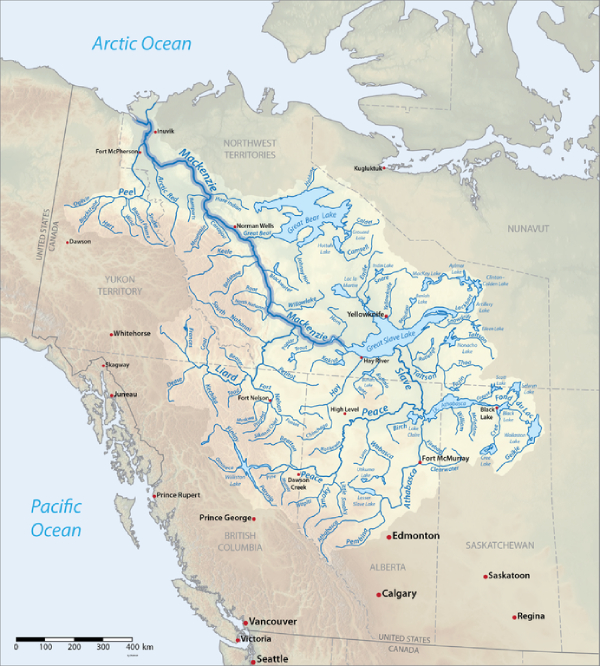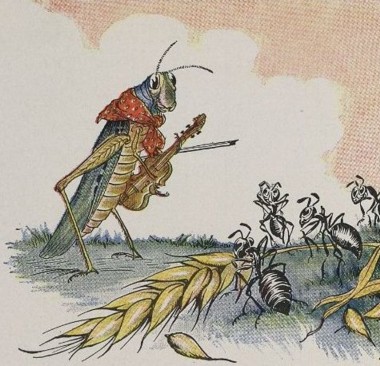The headline from the Toronto Star on 8 July 2024: ‘Nobody has these stories’: Canada’s longest river at record low levels.
The subhead tells a story that is happening around the world: “The Mackenzie River’s water levels are about two metres below average, said territorial hydrologist Ryan Connon. Only two years ago, rivers and rivers and lakes in the Mackenzie system were at all-time highs.”
The Mackenzie River flows from the Great Slave Lake to the Beaufort Sea. That’s 1,738 kilometers, or 1,080 miles. The watershed covers parts of five provinces and territories. This is a huge area. After all, Canada is comprised of 10 provinces and 3 territories.
Here’s the lede: “Canada’s longest river is at historically low levels, stranding communities that rely on it for essential goods and alarming First Nations along its banks who have never known the mighty Mackenzie to be so shallow.”
The entire country is experiencing similar issues. Great Bear and Great Slave Lakes are at or near all-time low levels. The same goes for tributaries of the Mackenzie River.
The Mackenzie River is central to life in the large area where it is found. The area it occupies is known as the Dehcho, which is Dene for Big River.
The declining water supply is causing social, economic, and environmental concerns. According to the land and resources manager for the Liidlii Kue First Nation, “[t]his has never been seen before. Looking out at the water from his office in Fort Simpson, Northwest Territory, he said “This has never been seen before. We’ve asked elders, ‘Does anybody have stories about water being this incredibly low?’ Nobody has these stories.” The article explains that normal season fluctuations are about 50 centimeters. Two meters below average is “quite significant.”
The story in the Toronto Star provides yet another example of exceptional variability in Earth Systems. The massive Mackenzie River is now two meters below average. Two years ago, rivers and lakes in the Mackenzie system were at all-time highs.
Much of this area lacks roads that are open throughout the year. Communities are supplied by river barges or airplanes. A village mayor about halfway along the river’s length pointed out that fundamental supplies were being disrupted: “Pretty well everything, even our fuel.” Living without fuel in Canada is a big deal, especially heading into the autumn and winter months.
Earlier, I mentioned territorial hydrologist Ryan Connon. He is quoted in the Toronto Star article: “We’ve been experiencing extreme drought over the entire Mackenzie River Basin over the last two years, coupled with extremely high temperatures. We’re definitely seeing a climate change signal.”
The climate change signal includes long sandbars where none were present before. Rocks once under water are bare and dry. River banks once far apart are closer than ever.
The land and resources manager for the Liidlii Kue First Nation said, “To see it so dry, it’s pretty crazy. We’re river people. Traditionally, you’d be able to go up these creeks and stuff to go hunting, but getting into the bush is getting a little bit harder. If it goes too long, issues of food security start popping up.”
The article in the Toronto Star concludes with a three-word sentence: “Climate change sucks.”
If you’re watching this video from your home, climate change probably doesn’t suck for you. Not yet. But it certainly sucks for a lot of people in the world.
In a related note, I recently received an email message. It was sent to me and a few other people, and it provided a very long overview of the horrors of climate change that we are experiencing now and also the ones that undoubtedly lie in the near future.
I responded with my customary recommendation about living fully, with intention, every day. I suspect this message has grown old for many of you. However, one of the people on the list indicated that my message was new to them.
This is why I keep plugging away. Reaching one person every now-and-then is as good as it gets. I’m reminded of my many years at the head of various classrooms. Many times, I was disappointed that one or a few people seemed to understand the message I was relaying. I would remind myself that reaching one student each semester was important. Changing lives, one life at a time, did not represent failure on my part.
I feel the same way now. Perhaps you do, too.
Author
"Dr. Guy McPherson is an internationally recognized speaker, award-winning scientist, and the world’s leading authority on abrupt climate change leading to near-term human extinction. He is professor emeritus at the University of Arizona, where he taught and conducted research for twenty years. His published works include 14 books and hundreds of scholarly articles. Dr. McPherson has been featured on TV and radio and in several documentary films. He is a blogger, cultural critic, and co-host of his own radio show “Nature Bats Last.” Dr. McPherson speaks to general audiences across the globe, and to scientists, students, educators, and not-for-profit and business leaders who seek their best available options when confronting Earth’s cataclysmic changes." source







